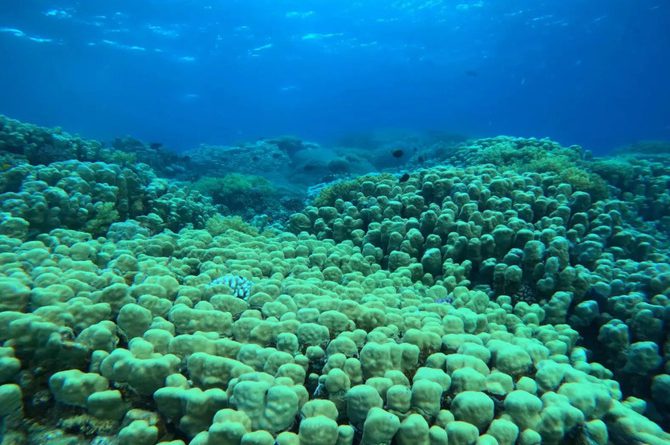Researchers Report Remarkable Improvement in Red Sea Coral Reef Health, Boosting Saudi Arabia’s Conservation Success
Riyadh – In a major environmental breakthrough, researchers from Saudi Arabia’s National Center for Wildlife (NCW) have reported a significant improvement in the condition of coral reefs in the Red Sea, signaling a major victory for the Kingdom’s ongoing conservation and sustainability efforts.
The findings, announced on Tuesday by the Saudi Press Agency (SPA), highlight the resilience of the marine ecosystem even amid the extreme summer temperatures that often pose a risk to coral health.
According to the NCW’s field surveys, no cases of severe coral bleaching or mass marine mortality were recorded during the study period — a remarkable outcome that demonstrates the effectiveness of Saudi Arabia’s comprehensive marine protection strategies.
These results underline the positive impact of environmental policies introduced under Saudi Vision 2030, which prioritize biodiversity conservation and sustainable management of natural resources.
The surveys, conducted across multiple sites along the Red Sea coastline, revealed stable coral ecosystems with healthy growth patterns and improved water quality. Researchers attributed this progress to a combination of strong conservation measures, technological innovation, and public awareness programs aimed at preserving marine life.
The NCW team, consisting of Saudi scientists and marine experts, employed advanced remote sensing technologies and specialized field instruments to monitor the Red Sea’s physical and chemical properties.
This scientific approach provided accurate real-time data on coral conditions, water temperature, and pollution levels, helping experts track environmental changes and assess ecosystem resilience.
The researchers also monitored human activities, including marine waste disposal and discarded fishing gear, which often pose serious threats to coral habitats.
By identifying and mitigating these impacts, the NCW aims to create a comprehensive knowledge base that supports smarter environmental planning, responsible tourism, and long-term marine ecosystem management.
The NCW’s statement emphasized that these findings reflect the Kingdom’s firm commitment to protecting marine biodiversity as part of its Red Sea sustainability initiative.
This initiative aligns with broader national efforts under Saudi Vision 2030, which seeks to balance development with ecological responsibility. The center highlighted that the results of this project not only benefit Saudi Arabia but also strengthen the country’s position as a regional and global leader in marine conservation.
“This achievement showcases how collaboration, research, and technology can work hand in hand to protect one of the world’s most unique marine environments,” the NCW said. “The Red Sea is a symbol of natural beauty and biodiversity, and safeguarding it is essential for the wellbeing of future generations.”
The study conducted this summer marks the second major survey by the NCW, following an initial round in April. Together, the surveys covered 64 locations along the Red Sea coastline, allowing scientists to compare seasonal variations and evaluate coral recovery trends.
The data indicated a consistent improvement in coral health across the surveyed sites, suggesting that protective measures and reduced environmental pressures are yielding positive, lasting results.
The Red Sea is home to a rich array of marine life — including whales, dolphins, hammerhead sharks, sea snakes, and colorful coral species — making it one of the most biologically diverse marine ecosystems in the world.
The NCW’s findings offer renewed hope for the protection of these species and the preservation of their habitats amid global climate challenges.
Adding to the optimism, the researchers noted that the massive Pavona coral colony — one of the largest and most visually striking coral formations in the Red Sea — is expected to become an environmentally friendly tourist attraction managed by Red Sea Global, further integrating conservation with sustainable tourism.
Experts believe that Saudi Arabia’s success story can serve as a model for other coastal nations seeking to balance economic growth with environmental stewardship.
The Kingdom’s proactive investment in marine science, public engagement, and ecological innovation continues to inspire new regional collaborations.
In conclusion, the improved health of the Red Sea’s coral reefs stands as a powerful testament to the Kingdom’s dedication to environmental excellence.
Through a combination of research-driven policy, advanced technology, and a deep respect for nature, Saudi Arabia is setting a global example in protecting its marine ecosystems — ensuring that the Red Sea remains a thriving, sustainable habitat for generations to come.



